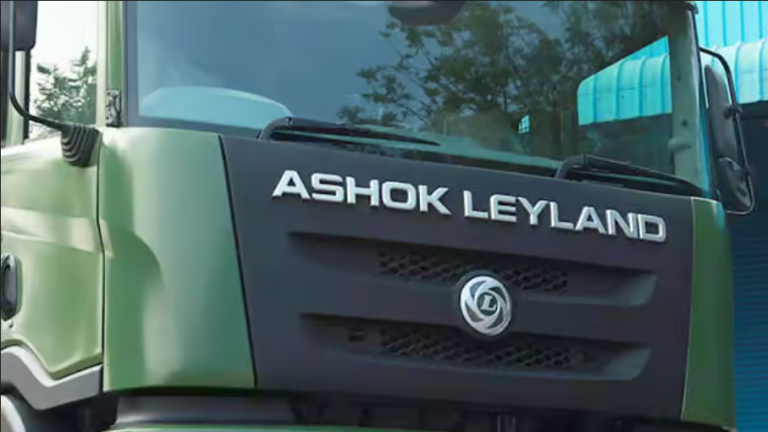The Chennai-based commercial vehicle major Ashok Leyland has revealed impressive numbers for Q4 of the FY. The Company’s stock rose by 6% after the quarterly profit rose by 20% year-on-year.
Ashok Leyland’s Q4 Performance
Ashok Leyland’s consolidated profit after tax (PAT) rose by a spectacular six times in Q4 ended on 31st, March 2021. This significant increase can be attributed to the capacity of the company to offer optimal performance in this era of global economic downturn.
Although the performance indicated a 17% Year-on-Year (YoY) decline in net profit during the same period, some of the top brokerage firms are still bullish on Ashok Leyland. While JP Morgan has an overweight on the stock, Nomura and Jefferies have a buy for the shares. These endorsements point to the enduring value of the firm.
Recovery in Commercial Vehicle Demand
Currently, the demand for commercial vehicles is on the rise as the economy gains momentum. This is a trend that will benefit Ashok Leyland given the strength of its product offering in this market.
Cost Optimization Measures
Some of the strategies include minimizing expenses and these have helped the company in improving its position. Such factors as effective supply chain management and proper management of cost have helped in enhancing profitability.
Focus on Electric Vehicles (EVs)
Ashok Leyland’s direction towards EVs puts it in good stead for the future. The drive to cleaner sources of energy is in harmony with world trends and legislation.
Investment Considerations
At the current price, Ashok Leyland’s shares are valued at around 21.07 times the current price trailing 12-month earnings per share (EPS) and 4.78 times its price-to-book value. These valuation metrics should be balanced against expectations of growth among investors. The commercial vehicle industry has a cyclical nature and depends on macroeconomic indicators. Investors need to be aware of the general business environment and industry-specific trends. Any investment comes with risks and so does Ashok Leyland. These are economic risks, regulatory risks, and competitive risks respectively.
Key Challenges faced by Ashok Leyland
Ashok Leyland belongs to the commercial vehicle industry, which is by nature a cyclic industry. Fluctuations in economic conditions can greatly affect the demand for trucks and buses. During recessions, consumers and companies delay their purchases of new vehicles leading to reduced revenues and sales for the firm.
The competition for commercial vehicles in India is quite stiff. Ashok Leyland operates in the same industry as other strong industry players such as Tata Motors, Mahindra & Mahindra, and Eicher Motors. Another threat is the threat of new entrants and foreign manufacturers. This puts pressure on Ashok Leyland to innovate and provide better products to retain its market share.
Overall, the situation of Ashok Leyland largely depends on the condition of the economy in India. This means that when the rate of economic growth is low, the demand for commercial vehicles is also low. On the other hand, in periods of high economic growth, the company enjoys improved aspects such as infrastructure development, logistics, and transport.
Conclusion
The operational metrics of Ashok Leyland indicate that it has the endurance and flexibility needed to navigate the current environment successfully. Despite this, smart investors should first check their ability to handle risk, second, look at the industry conditions, and third, estimate the long-term potential of the company.

Note: You can reach us at support@scoopearth.com with any further queries.
Linkedin Page : https://www.linkedin.com/company/scoopearth-com/













